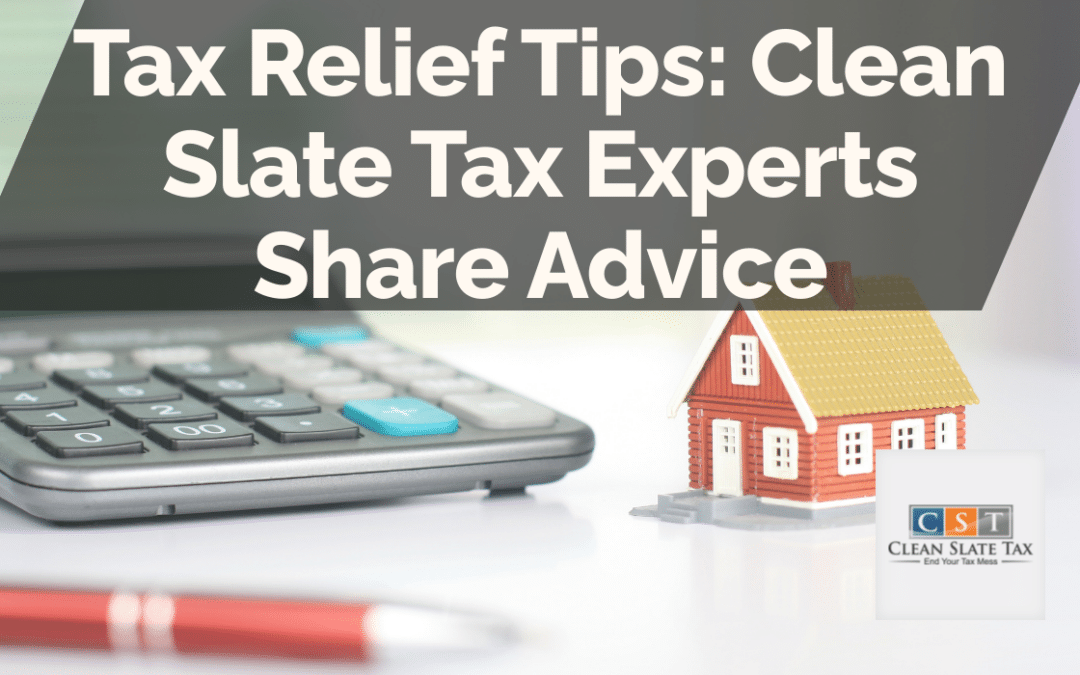Tax Relief Tips: Clean Slate Tax Experts Share Advice
Filing for taxes can be a complicated and daunting process. You might find yourself owing money to the government due to various reasons including underpayment of taxes or failing to file returns on time. The good news, however, is that the IRS offers various tax relief and resolution programs that can help you manage your tax debt and avoid penalties and interest. Clean Slate Tax, a tax resolution company that helps taxpayers resolve their tax debt issues, shares some useful tax relief tips.
1. Know Your Rights
As a taxpayer, you have rights that are protected by law. The IRS is required to inform you of your rights during the tax collection process. These rights include the right to:
- Representation: You have the right to have a tax professional represent you before the IRS.
- Privacy: The IRS is required to keep your personal and financial information confidential.
- Fair treatment: The IRS is required to treat you fairly and with respect.
- Appeal: You have the right to appeal any decision made by the IRS.
2. Seek Professional Help
Handling tax debt issues can be overwhelming and stressful. Seeking professional help from a tax resolution company like Clean Slate Tax can help you find the best tax relief program for your situation. Tax professionals can help negotiate with the IRS on your behalf and help you manage the necessary paperwork and documentation.
3. Consider Payment Plans
The IRS offers different payment plans that allow taxpayers to pay off their tax debt in installments. Two popular payment plans include:
- Installment Agreement: Taxpayers who owe less than $50,000 can apply for an installment agreement that allows them to pay off their debt in monthly payments for up to six years.
- Offer in Compromise: This is a settlement option for taxpayers who cannot pay the full amount of their tax debt. Taxpayers can offer a compromise amount, which is usually less than the total tax debt owed. The IRS will consider this offer if it believes that it is the best way to collect the amount owed.
4. File Your Tax Returns Even If You Can’t Pay
If you can’t pay your tax debt in full, it’s still crucial to file your tax returns on time. Failing to file tax returns can lead to penalties and interest, which can worsen your tax debt problems. You can arrange to pay the tax debt in installments and avoid additional penalties and interest.
5. Be Aware of Scams
Unfortunately, tax relief scams are common. Scammers prey on taxpayers who are struggling financially and promise to resolve their tax issues for large fees. To avoid scams, it’s vital to research the tax relief company before hiring them. Legitimate tax relief companies should be registered with the Better Business Bureau, have a physical office, and have experienced and licensed tax professionals.
Frequently Asked Questions
What is the IRS Fresh Start Program?
The Fresh Start Program is a collection of IRS initiatives that help taxpayers with tax debt issues. The program includes various tax relief measures, including payment plans, offer in compromise, and penalty relief.
What are the consequences of not paying taxes?
If you fail to pay taxes, the IRS can take legal action against you, including seizing your assets, placing a lien on your property, and wage garnishment. Additionally, you may incur penalties and interest on the amount owed.
Do I qualify for tax relief programs if I owe a large amount of tax debt?
Yes, taxpayers with a large amount of tax debt can qualify for tax relief programs. The amount owed determines the available relief options, and a tax professional can help you find the best program for your situation.
Can I negotiate with the IRS directly?
Yes, taxpayers can negotiate with the IRS directly. However, it’s essential to seek professional help from a tax resolution company to navigate the negotiation process effectively.





